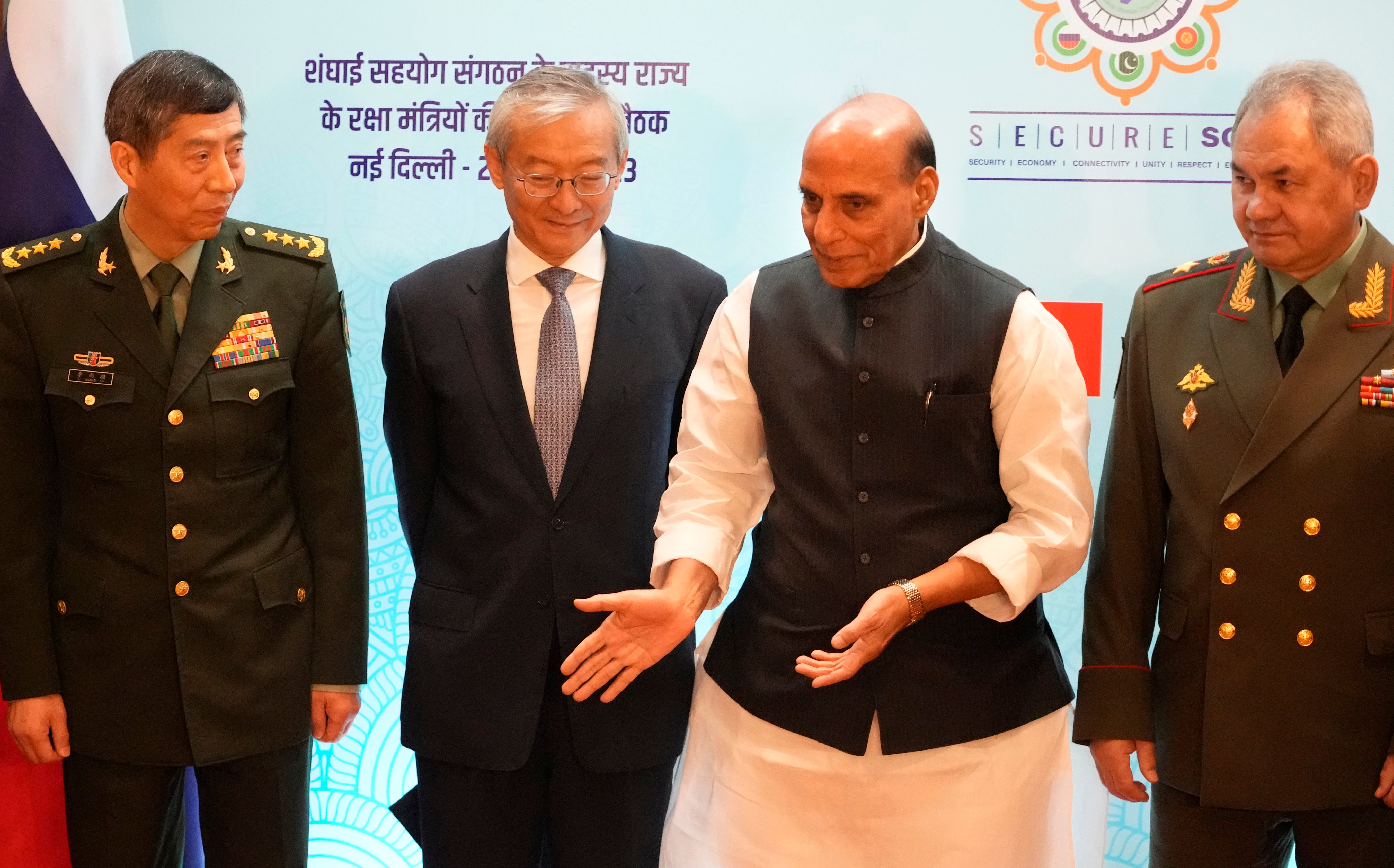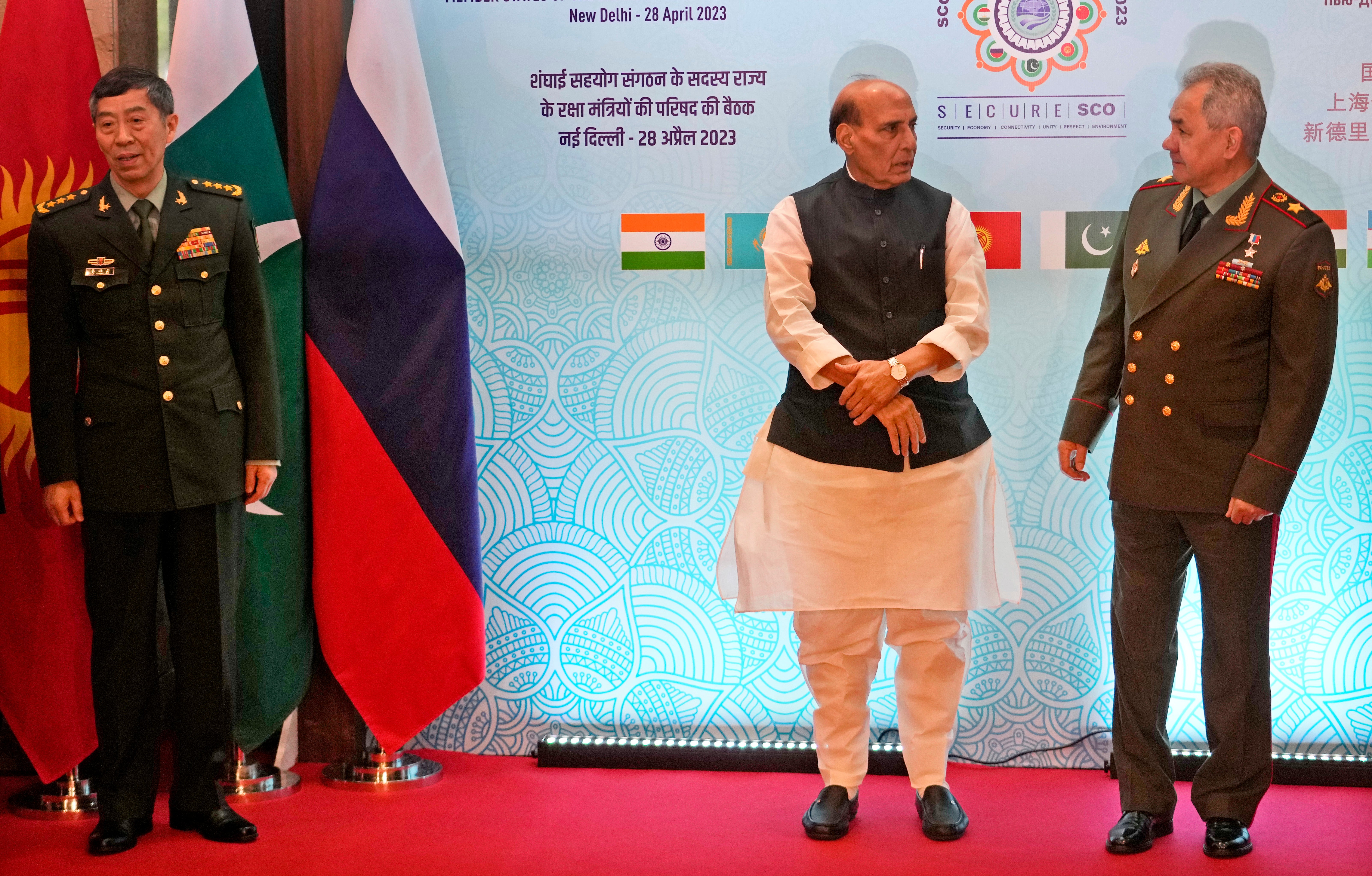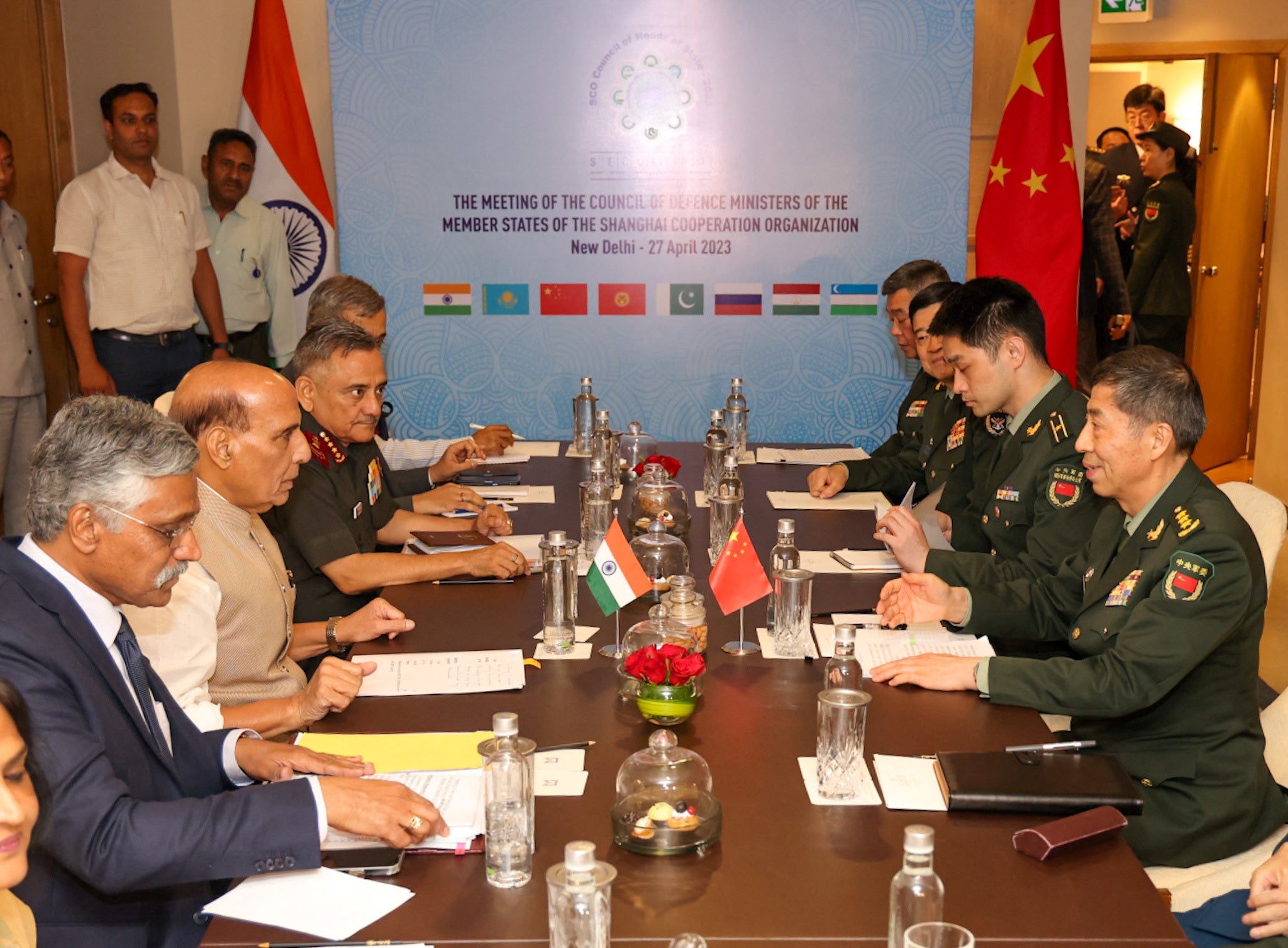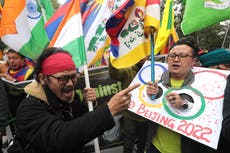China downplays India’s border concerns amid ‘eroding’ ties
Analysts say China is trying to ‘normalise’ the new changed status quo at Indian borders

India and China have issued conflicting statements on the long-drawn-out contentious border issue that has strained ties between the two nuclear-powered neighbours.
General Li Shangfu and Rajnath Singh, the defence ministers of the two countries, met for the first time on Thursday on the sidelines of the Shanghai Cooperation Organization (SCO), since a stand off in the northern Himalayas erupted three years ago.
The two Asian giants share a 3,488km-long disputed border known as the Line of Actual Control, where they are locked in a high-altitude stand off – the worst in almost four decades.
The Chinese defence ministry said on Friday that the situation along the contested border is “generally stable”, a statement that appeared to downplay New Delhi’s deep concerns of violations of border agreements.
Newly appointed Chinese defence minister Mr Li is the first official to visit India following the deadly clashes between the two militaries in the summer of 2020.
The two sides issued contrasting statements as the Chinese side appeared to deflect from the border issue, while India tried to draw attention to what it said is the deployment of a large number of Chinese troops and attempts to unilaterally alter the border status quo between the countries.
The frosty relations between the two sides were also displayed in the body language and gestures of the ministers as they skipped handshakes during a bilateral meeting attended by other SCO members.
Mr Singh was, however, seen shaking hands with his counterparts from Tajikistan, Iran and Kazakhstan.
General Li added that the countries “have far more common interests than differences”.
“The situation on China-India border is generally stable and the two sides have maintained communication through military and diplomatic channels,” he said.
General Li urged India to take a “long-term view” of the situation and de-link border issues with bilateral relations.
“The two sides should take a long-term view, place the border issue in an appropriate position in bilateral relations, and promote the transition of the border situation to normalised management,” he said.
Beijing alluded to the “stable” situation at the border shortly after Indian defence minister Mr Singh said he “categorically conveyed” to his Chinese counterpart that development of relations between two countries is premised on the prevalence of peace at the border.
“He reiterated that violation of existing agreements has eroded the entire basis of bilateral relations and disengagement at the border will logically be followed with de-escalation,” a statement by Indian defence ministry said.
Sushant Singh, a senior fellow at the Delhi-based Centre for Policy Research, told The Independent that China is trying to normalise the new status quo where several Indian posts are contested.

Mr Singh said China has maintained that the situation is stable at border for “a long time and it has continued to state that position”.
“In fact, Indian position has not changed either and so we have two sides speaking past each other,” Mr Singh underscored.
“China has for a long time been saying this is the new normal and India should not insist on any more progress. But that is unacceptable to India and that is the issue here,” he said.
However, India is unable to pressure China on the issue as its high trade volume with its nuclear neighbour along with private investment from the latter are factors that have allowed diplomatic ties to continue.
Indo-China bilateral trade soared to all time high of $139.9bn in 2022, widening the trade deficit with Beijing and crossing the $100bn mark for the first time, according to data released by Chinese customs.
The trade gap with China widened to 28 per cent in April-December 2022 from the same period a year earlier.

At least 20 Indian soldiers and an unspecified number of Chinese soldiers were killed in brutal combat in 2020 in Galwan valley, and since then both sides have moved thousands of soldiers, artillery guns, tanks and missiles close to the border.
Just four days before Mr Li’s arrival in New Delhi, the 18th round of commander-level talks between the Indian army and the People’s Liberation Army failed to reach a significant breakthrough to disengage troops from contested positions.
“The two sides agreed to stay in close contact, maintain dialogue through military and diplomatic channels and work out a mutually acceptable resolution of the remaining issues at the earliest,” India’s foreign ministry said in a statement on Monday.
Join our commenting forum
Join thought-provoking conversations, follow other Independent readers and see their replies
Comments


Bookmark popover
Removed from bookmarks